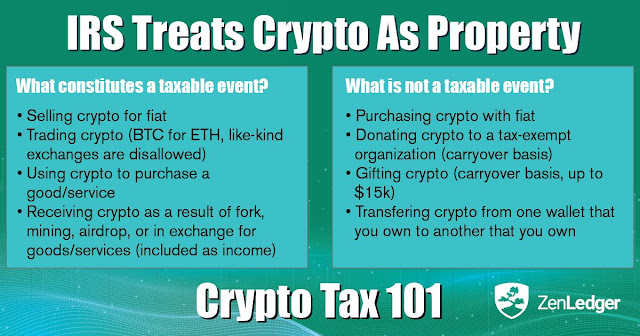How Much Tax Does US Bitcoin Miners Have To Pay?
The recent years have been the era of Bitcoin boomers, where values surged and investors got some big profits this year. Despite its environmental concerns, the United States of America has wildly participated in investing and mining activities and taxes have now been imposed on its value. The tax imposition on your crypto transactions now may affect your business model or your annual bill settlements. This has been far so reinstated since China banned the industry in 2021.
Since then, there has been a rush of miners with a groundbreaking track
price of USD 68,000, as recorded in November 2021. Additionally, the pre-mining
factor before the initial Coin Offering has hastened the process to a major
extent. As the situation may be, Bitcoin and Ethereum are subjected to capital
gains tax rules and all crypto-currency are treated as capital assets, owing to
the government a certain amount of tax, when you sell it at a profit. This
article sheds light on the rudimentary process of Bitcoin mining, how you may
be taxed, costs, profits, and the energy usage and risks.
Evolution of Bitcoin
Ever
since Bitcoin has been launched in 2009, the volatility of prices has never
been an issue with investors. Despite the risks, digital currency was always a
popular choice determining the fate of 69.9% of US citizens, mainly
concentrating around New York, Texas, Kentucky, and Georgia. Interestingly
enough, Bitcoin was soon introduced in the regulations of the US and European
markets, and slowly took over the logbooks of MNCs like Tesla, Overstock.
Considering the success of the last year, we see new Dogecoin and voices of
Elon Musk taking over the internet. Companies like Foundry USA, Riot
Blockchain, Genesis also expanded their facilities, with Genesis heading over
to Iceland and Riot Blockchain expanding its Texas facility. With such
expansive progress, the country has now overtaken China to share one of the
largest Bitcoin mining data.
Bitcoin Basics
The
operation of Bitcoin largely depends on Blockchain technology, which is an electronic
ledger with an increased capacity to store data as the investor list grows. The
blocks in the chain act like compartments where the transaction data are
stored. Each block further contains a unique 64-digit hexadecimal value
outlining the contents of the stored data as well as that of the previous one.
Much like the excitement of Las Vegas casinos, the miner has to guess the hash
value to win a block in the cryptocurrency. The computing power is deployed by
the technology increases as the number of miners begins to increase. But, by
doing so, each miner’s chance loses its chance of winning the guessing game,
making the odds one in one billion. The biggest controversy revolving around
the Blockchain is the absence of a regulation institution like a bank, which
facilitates the PoW or the consensus mechanism of the technology. PoW is
essentially an algorithm that is similar to millions of users mining the
currency, thus, maintaining a strapping way to secure a decentralized network
and ensuring security to its investors.
Ethereum on the other hand, works on a slightly different nudge, with what is called the Proof of Stake or PoS. the biggest advantage which has contributed directly to the rising popularity of this currency, is the absence of the decentralized network of miners, making it far more cost-effective and also slightly eco-friendly than others. Having utilized less energy, this is ideal for future Blockchain miners who work on Smart Contract applications and with non-fungible tokens.
However, the evolution of Bitcoin also bought in a few drawbacks, the
most common of which is cutting rewards by half from 7.25 BTC to almost 3.125
BTC in 2024. But in spite of the drastic change, the ban put forward by China
instigated the spiraling of “Hashrates” to 17.5 quintillion hashes per second.
No wonder the tax departments felt the keen desire to impose a tax on the
profits!
How are the taxes imposed?
The
capital gain taxes depend on how long you have a cryptocurrency and whether you
have mined it as a hobby an individual or as a part of a business entity. If
you have only involved yourself in less than twelve months, then your profits
are taxed at the rates of short-term capital gains, which is the same as your
regular income tax rate. However, if you have been holding the Bitcoin for more
than a year, you will be categorized into long-term capital gains, making your
income tax lower than the former. Much like other investments, crypto also lets
you claim a capital loss if you were unable to make any profits or sold at a
loss. When used with purchases, Bitcoin is also applicable to taxes, as it
counts as the sale of the currency. On top of this, the purchase as per all
laws also requires you to pay sales tax.
With
most miners, it is also categorized as a part of your regular tax income. You
are assigned to pay tax on the entire fair market value of Bitcoin or Ethereum
on the day you received it, as per the regular income tax rate. In case, you
have earned profits while mining the currency, you also pay capital gain taxes
on the profits, depending on the duration of your investments and the profit
generated during the term. Considering the scenarios of unending taxes, you
might want to consider keeping a record of all your transactions, so as to have
an easy time while filling the income tax.
Bitcoin Mining Risks
Every
investment involving monetary transactions has its share of risks. The price
volatility along with potential factors such as internet connectivity,
available electricity sources that should be reliable, overeating of the ASICs
and not to mention system hacks is what revolves around you as a miner.
Investing in an efficient Bitcoin system setup is recommended which regular
servicing of the electrical systems and ensuring sound cyber security of your
operations.
Although
many companies around New York and Texas have expanded their facilities, the
question still arises with the vulnerability of their power grids. Despite the
tax rules, the regulatory policies still pose a challenge. Even Kazakhstan, the
largest country of Bitcoin miners has assimilated new operational procedures to
oversee the high demand of their power grids. In the US, the federal government
is aiming to get significant control of the platform by 2023 and has also urged
the Federal Reserve to look into the risk factors underlying the booming
business.
Climate
change and reducing carbon footprint has taken precedence in recent years and
it is needless to say that Bitcoins have been in the limelight. In a response
to the rising environmental concern, Tesla, one of the biggest Bitcoin
investors recently announced that it would further suspend any purchase due to
various environmental factors. The response from the crypto industry has been
welcoming as well. Many of the long-running companies with large facilities
have been transitioning to renewable sources. Companies such as Lancium, and
HIVE operate on 100% renewable sources of energy with high and efficient
storage. It has been estimated that 40% of US companies so far have made the transition,
with the rest still underway for the change.







Comments
Post a Comment